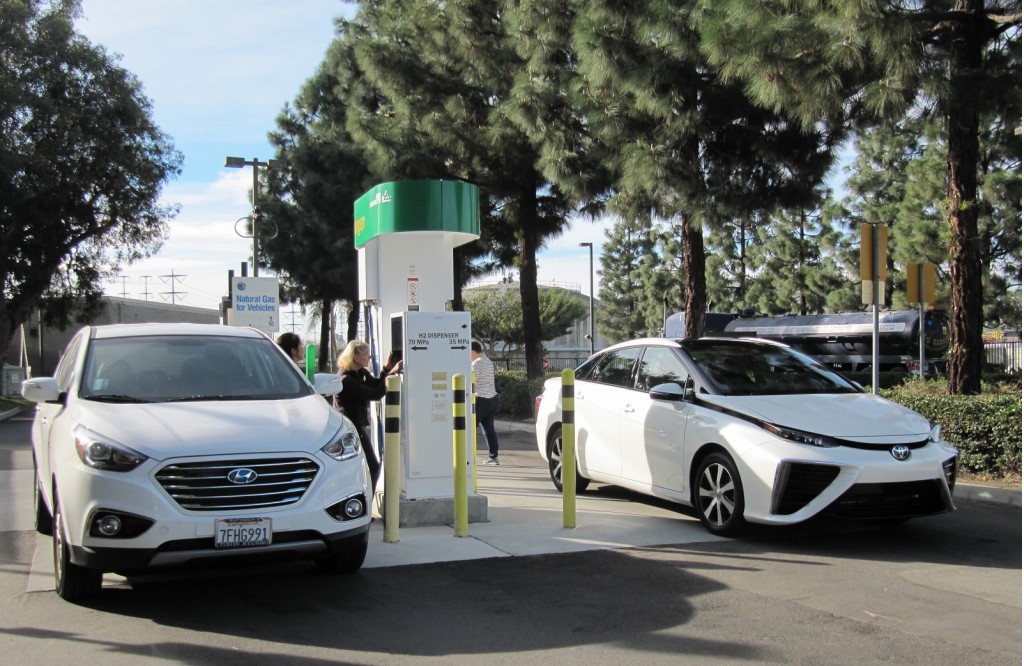When it comes to green cars, California leads the nation—and has done so for decades.
California residents buy more hybrids and electric cars than those of any other state, and it is also the only state with fueling infrastructure to support the sale of hydrogen fuel-cell vehicles.
Consumer enthusiasm is underpinned by strict regulations, including a zero-emission vehicle mandate and separate, tougher emissions standards than those administered by the federal government.
DON'T MISS: Automaker lobbyists fail to overturn EPA emission rules
Worries that the political climate in Washington will become less friendly to environmental causes could put California at odds with the federal agencies that limit emissions.
Given a long history of state-level policies that clash directly with the campaign rhetoric of President-elect Donald Trump, a recent op-ed from The New York Times argues that California could be set to fight the incoming administration on a number of fronts.
But what does that mean for the state's current green-car policies, particularly California's ability to write its own emissions standards?

NRG eVgo Freedom Station at Whole Foods Market, Fremont, California
National efficiency standards are jointly administered by the Environmental Protection Agency (EPA), which regulates emissions, and the National Highway Traffic Safety Administration (NHTSA), which regulates fuel economy.
The two sets of standards became linked in 2012, when the EPA began to regulate emissions of not only so-called criteria pollutants (nitrogen oxides, carbon monoxide, and hydrocarbons) but also the climate-change gas carbon dioxide.
The current standards, jointly developed by the two agencies, are in place through 2025 in the form of EPA emissions rules and the NHTSA's Corporate Average Fuel Economy (CAFE) rules.
ALSO SEE: Ford will ask Trump to cut fuel-economy rules, CEO says; 'no demand' for hybrid, electric cars
Earlier this month, the EPA recommended that its vehicle-emission standards for 2022 to 2025 remain in their current form.
But automakers have already begun to lobby the new administration to reverse that decision, as well as undertaking other policy changes to loosen various types of regulations, both those in effect now and some anticipated for the future.
It's worth noting that, while automakers generally prefer less-strict regulations, they also dislike uncertainty—and so have some incentive not to overturn current standards they've invested billions of dollars to meet.

2015 Hyundai Tucson Fuel Cell, 2016 Toyota Mirai at hydrogen fueling station, Fountain Valley, CA
The most direct attack on California's current autonomy in emissions regulations would be a lobbying effort that targeted the provision in the Clean Air Act that allows the state to enact its own standards.
Combined with any slackening of CAFE standards, that could deal a serious blow to the momentum of green cars.
But this isn't thought to be a top priority of the new administration, at least in its first 100 days—and the nominee for EPA administrator, Oklahoma attorney general Scott Pruitt, must still undergo Senate confirmation hearings.
MORE: Is Trump presidency the real market test for electric cars?
California's zero-emission vehicle mandate has driven automakers to develop and sell more electric cars, as well as pursue hydrogen fuel-cell cars.
Those standards start to ramp up to higher levels with the 2018 model year; the state's goal is that few new combustion-engine vehicles are sold after 2030, and a majority of vehicles on its roads are zero-emission by 2050.
Even if the U.S. backpedals on emission regulation at a national level, California will be following the same path as China and the EU, two large and important vehicle markets that presently have no intention of dialing back efforts to reduce carbon emissions.
Green Car Reports respectfully reminds its readers that the scientific validity of climate change is not a topic for debate in our comments. We ask that any comments by climate-change denialists be flagged for moderation. Thank you in advance for helping us keep our comments on topic, civil, respectful, and fact-based.
_______________________________________________












